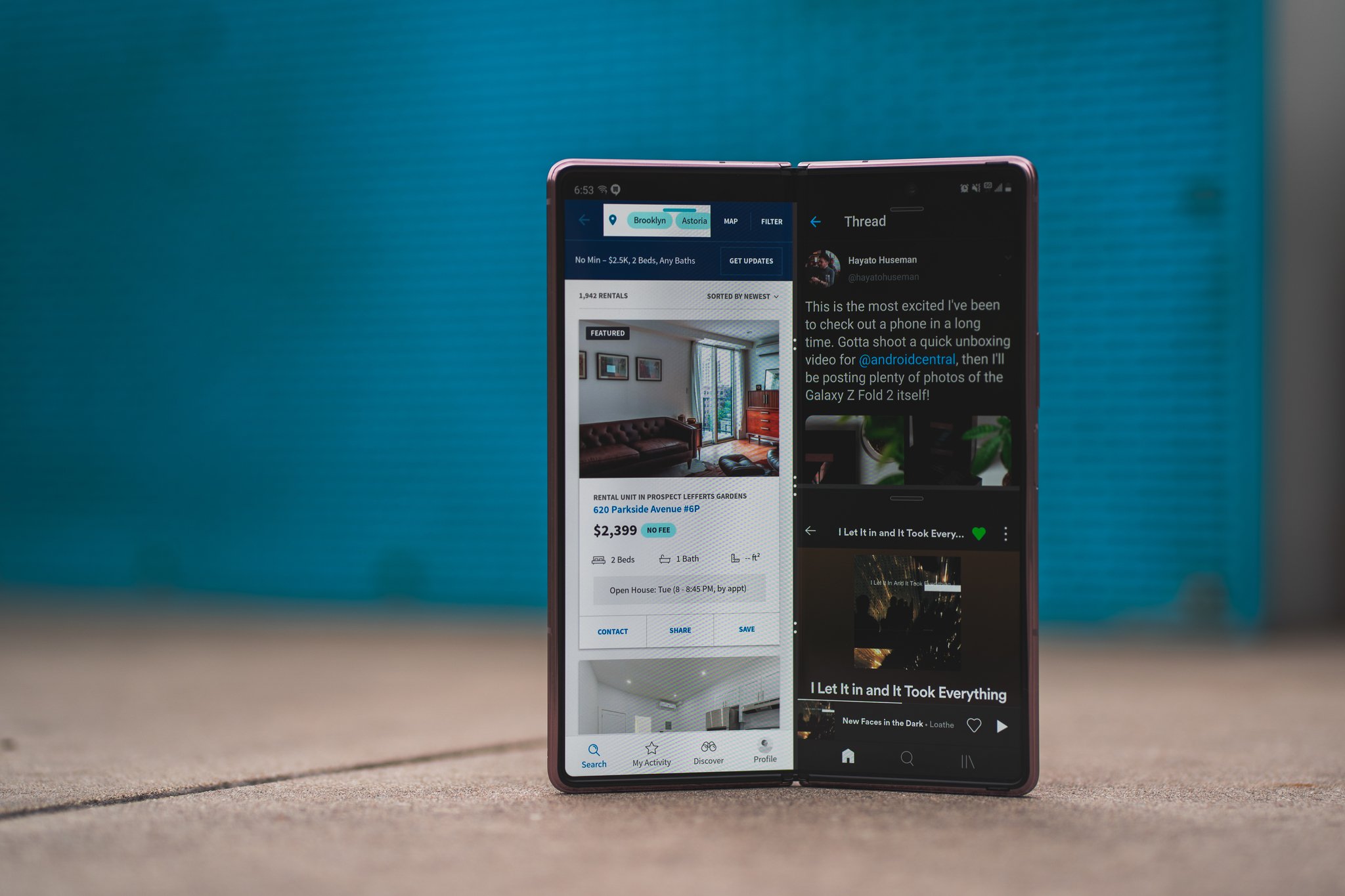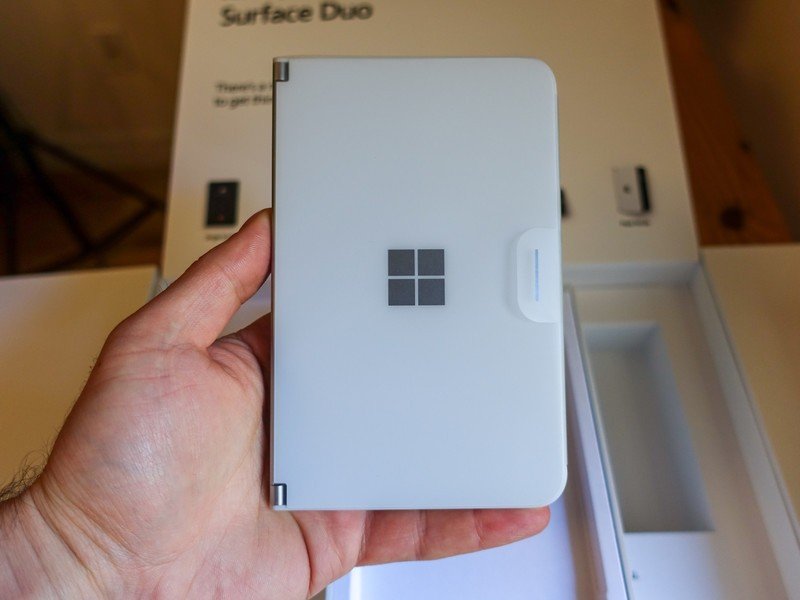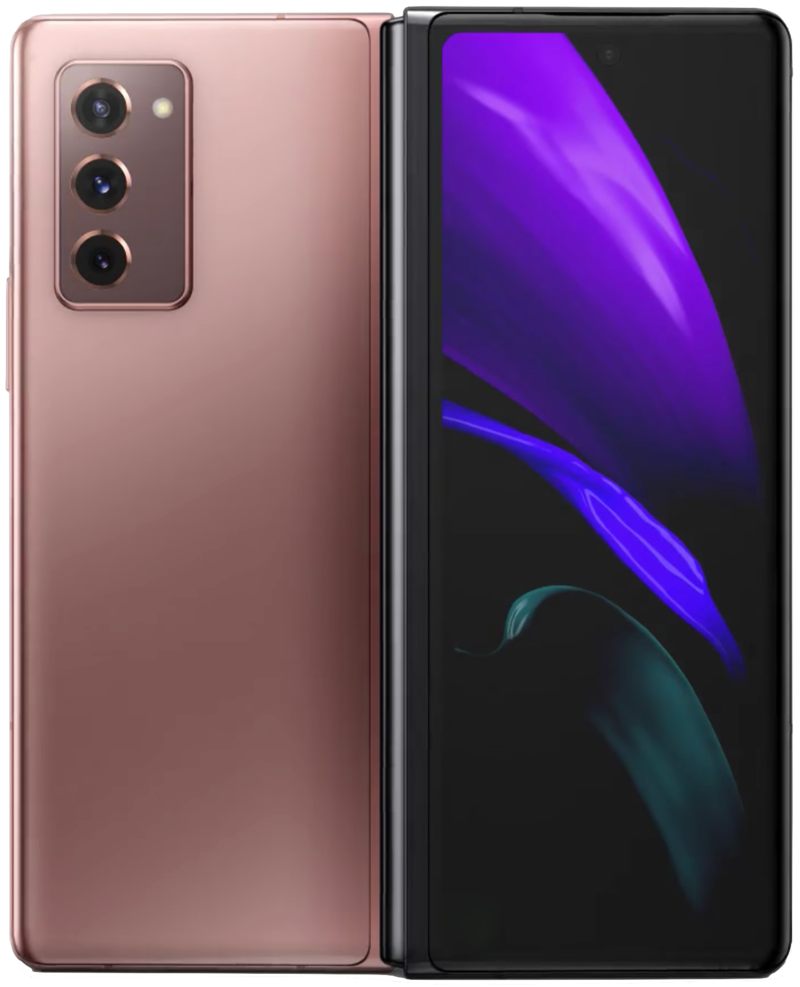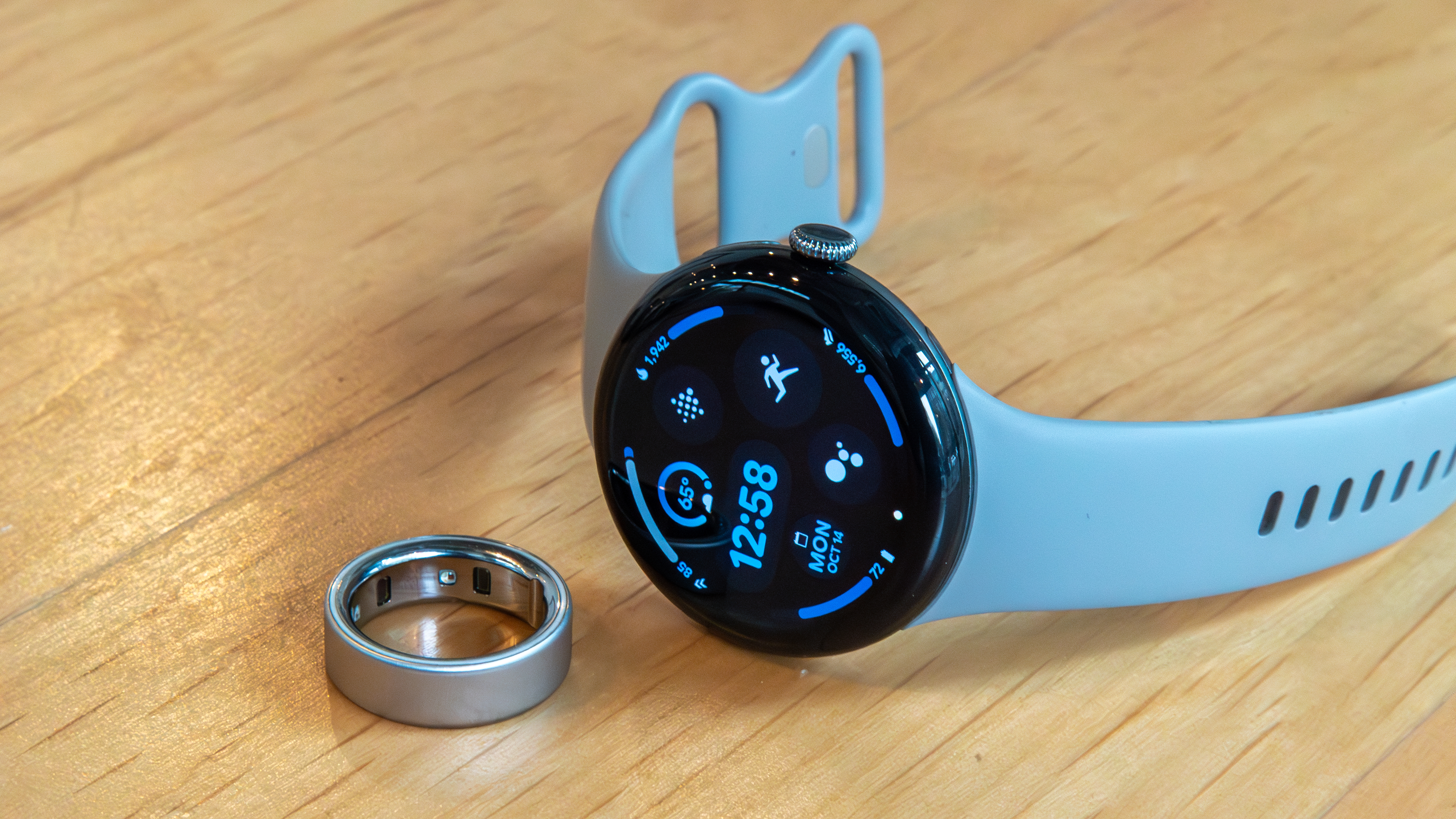Folding phones have blurred the lines between smartphones and laptops

I have to admit, the Galaxy Z Fold 2 has wowed me the same way the Surface Duo has. I'm not saying I'll rush to buy either because the price is still too high and these early adopter foldables haven't reached their full potential just yet. But that's coming and when it does get here, foldable devices are going to change everything we think we know about being mobile and connected.
Foldables are no longer gimmicks.
The Fold 2 especially drives home the idea that this sort of product is not just a gimmick. Like most of us, with the first foldables from Samsung and Huawei I simply saw a phone that stretches out into a bigger phone. While that might be useful for something like watching a show or playing a game, using a giant phone is awkward and cumbersome when you want to do something as simple as sending a message to a friend.
That "problem" still exists and Fold 2 users are going to spend plenty of time using the cover display for all of their "phone things" because it's just easier. But what Microsoft and Samsung have done with the latest generation of foldable shows off the productivity factor in a big way, and that really matters.
Traditionally, we've used a phone for most of our daily tasks and maybe have a tablet for videos and games. We can work from our phones in a pinch, but most folks who work at a computer all day usually have, well, a computer or a Chromebook to work with.
Nobody will be ditching their laptop or phone and rushing out to buy a foldable any time soon.
That's also not going to change very soon, but if you're a person who often works while out of the office or your home, these foldables are something new and different.
It's all about how the big screen (or two screens in the Surface Duo's case) can be used like two separate displays. The Samsung Unpacked Part 2 event showed this off in an amazing way when the Fold 2 was open like a small laptop with a YouTube video on the upper display and the comments on the lower half.
Now watching YouTube videos and leaving snarky comments (or heaven forbid reading the toxic comments) is hardly work unless you create content for a living. But combine that with the way Samsung, Microsoft, and their software partners have worked to get Microsoft Office or Gmail to flow the same way. Excel up top and a keyboard on the bottom sure beats using a regular phone if you want to work on a spreadsheet.
Get the latest news from Android Central, your trusted companion in the world of Android
I've already written how there will be some apps that multitask across two parts of the screen or two separate screens but there will be at least a million others that don't. Samsung, Microsoft, or even Google can't fix that and there will always be at least one app you want to use that is never updated to work well with a foldable.

But if this category of device takes off, and I think it will, we'll see more and more developers fire up whatever SDK they need so their app can also be spectacular on a foldable. With numbers — as in device sales — comes change.
Foldables aren't a phone, or a laptop, or a tablet. They're a mix of all three.
Consumers aren't going to flock to foldable devices right away. We all know that; the price is prohibitive and most people just don't need something like a foldable phone. But these aren't phones. They are mobile productivity devices that can let someone leave their laptop and the heavy bag it's in at home if they spend a day in the park or even go on a mid-week trip for a day or two.
Foldables aren't a phone. They aren't a laptop. They aren't a tablet. A foldable isn't as good as any of those for the things a phone, tablet, or laptop does best. But a foldable can do everything all three of those devices can in one package. As the software catalog of apps designed for foldables grows, more and more people will want one. Including yours truly.

The iconic foldable returns
Samsung is revolutionizing the folding space yet again with the Galaxy Z Fold 2. It retains the form factor of the original Fold, but comes with a few key upgrades. The cover display is much larger, the design is thinner, and the inner screen has a 120Hz refresh rate.

Jerry is an amateur woodworker and struggling shade tree mechanic. There's nothing he can't take apart, but many things he can't reassemble. You'll find him writing and speaking his loud opinion on Android Central and occasionally on Threads.
